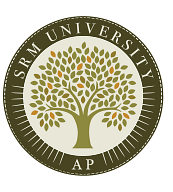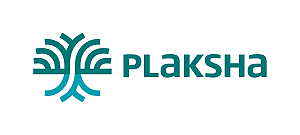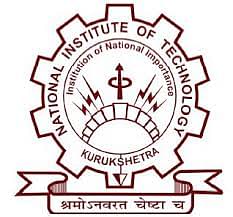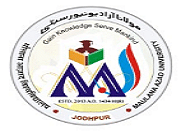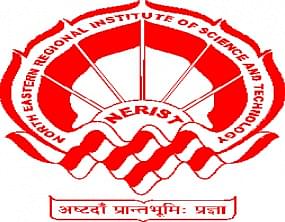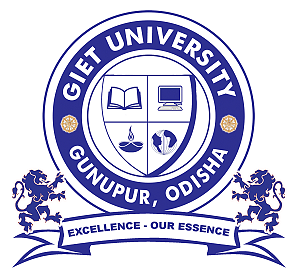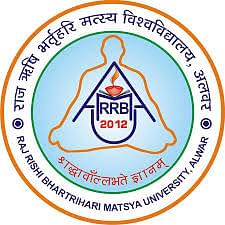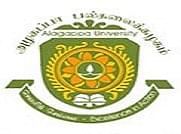Introduction about Ph. D in Operation Management
A Ph.D. in Operations Management from the top college is an advanced academic degree program designed for individuals seeking to deepen their understanding of the principles, methodologies, and applications of operations management at an advanced level. Operations management focuses on the design, planning, execution, and control of processes that transform inputs into goods and services. It plays a critical role in optimizing efficiency, quality, productivity, and competitiveness across various industries and sectors.
The Ph.D. program
in Operations Management typically combines rigorous coursework, research, and
practical application to prepare graduates for careers in academia, research
institutions, consulting firms, government agencies, or the private sector.
Throughout the
program, students engage in intensive coursework covering topics such as
operations strategy, supply chain management, inventory control, quality
management, process improvement, decision modeling, and operations research
methodologies. They also delve into advanced quantitative techniques,
analytical tools, and theoretical frameworks to analyze complex operations
issues and develop innovative solutions.
A significant
component of a Ph.D. in Operations Management is the completion of original
research leading to a doctoral dissertation. This research is expected to
contribute new knowledge or insights to the field of operations management,
often addressing contemporary challenges, emerging trends, or advancing
theoretical models. Doctoral candidates work closely with faculty advisors and
mentors to conceptualize, design, and execute their research projects,
enhancing their analytical, problem-solving, and critical thinking skills along
the way.
Graduates of Ph.D.
programs in Operations Management are equipped with the knowledge, skills, and
expertise to pursue careers as professors, researchers, or practitioners in
operations management, supply chain management, logistics, or related fields.
They may contribute to the advancement of knowledge through teaching,
publishing scholarly work, consulting, or leading innovative initiatives to
improve organizational performance and competitiveness.
Overall, a Ph.D. in
Operations Management offers a challenging and intellectually stimulating
academic journey for individuals passionate about operations and supply chain
management and committed to making significant contributions to the field
through research, scholarship, and practice.
What is admission process for Ph. D in Operation
Management?
The admission process for Ph.D. in Operations Management can vary depending on the specific
program and institution offering the degree. However, here's a general overview
of the typical steps involved in the admission process:
Research Programs: Prospective applicants typically start by
researching Ph.D. programs in Operations Management offered by various
universities to identify programs that align with their research interests,
career goals, and academic background.
Review Admission Requirements: Applicants should carefully review the
admission requirements and application deadlines for each program they're
interested in. These requirements are usually outlined on the program's website
or in the application instructions.
Prepare Application Materials:
Academic Transcripts: Applicants are required to submit official
transcripts from all previous academic institutions attended, demonstrating
strong academic performance, particularly in relevant coursework such as
operations management, supply chain management, statistics, mathematics, and
quantitative methods.
Standardized Test Scores: Many Ph.D. programs require applicants to
submit scores from standardized tests such as the GRE (Graduate Record
Examination) or GMAT (Graduate Management Admission Test). However, some
programs may waive this requirement or place less emphasis on standardized test
scores.
Letters of Recommendation: Applicants typically need to provide
letters of recommendation from academic or professional references who can
attest to their qualifications, academic abilities, research potential, and
suitability for doctoral studies in Operations Management.
Statement of Purpose: Applicants are usually required to submit
a statement of purpose or personal statement outlining their academic
background, research interests, career goals, and reasons for pursuing a Ph.D.
in Operations Management. This is an opportunity for applicants to articulate
their passion for the field and their research agenda.
Resume/CV: A current resume or curriculum vitae (CV) highlighting academic
achievements, research experience, professional experience, publications,
presentations, and relevant skills.
Research Proposal (optional): Some programs may encourage or require
applicants to submit a research proposal outlining their proposed dissertation
topic, research questions, methodology, and expected contributions to the
field.
Submit Application: Applicants must complete and submit the
online application form for the Ph.D. program in Operations Management, along
with all required supporting documents and application fees, by the specified
deadline.
Interviews (if applicable): Shortlisted candidates may be invited for
interviews as part of the admissions process. These interviews may be conducted
in person, via phone, or video conferencing and provide an opportunity for
applicants to discuss their research interests, academic background, and career
aspirations with faculty members or admissions committees.
Admission Decision: After reviewing all applications and
conducting interviews (if applicable), the admissions committee evaluates each
candidate based on their academic qualifications, research potential, letters
of recommendation, statement of purpose, and other relevant factors. Successful
candidates receive an offer of admission to the Ph.D. program in Operations
Management.
Acceptance and Enrolment: Accepted applicants must formally accept
the offer of admission and complete any additional enrolment requirements
specified by the university or program before the enrolment deadline.
It's important for
prospective applicants to carefully review the admission requirements and
instructions provided by each Ph.D. program they're interested in and to
prepare their application materials thoroughly to increase their chances of
admission. Additionally, reaching out to faculty members or current students in
the program for guidance and advice can be beneficial during the application
process.
What is eligibility for Ph. D in Operation
Management?
The eligibility criteria for Ph.D. in Operations Management can vary depending on the
specific program and institution offering the degree. However, here are some
common eligibility requirements:
Educational Background: Typically, applicants are required to have
completed a master's degree in operations management, supply chain management,
industrial engineering, business administration, or a related field from an
accredited institution. Some programs may accept applicants with a bachelor's
degree, particularly if they demonstrate exceptional academic performance and
relevant professional experience.
Minimum GPA: Many Ph.D. programs have a minimum grade
point average (GPA) requirement for previous academic coursework, which is
usually in the range of 3.0 to 3.5 on a 4.0 scale. However, higher GPAs may be
expected for more competitive programs.
Standardized Test Scores: Some Ph.D. programs require applicants to
submit scores from standardized tests such as the GRE (Graduate Record
Examination) or GMAT (Graduate Management Admission Test). However, some
programs may waive this requirement or place less emphasis on standardized test
scores, particularly if applicants have strong academic or professional
backgrounds.
Language Proficiency: For international applicants whose native
language is not English, proficiency in English is typically required. This may
be demonstrated through standardized tests such as the TOEFL (Test of English
as a Foreign Language) or IELTS (International English Language Testing
System).
Research Experience: While not always mandatory, having
research experience in operations management, supply chain management, or
related fields can strengthen an applicant's candidacy. This may include
involvement in research projects, publications, conference presentations, or
relevant work experience.
Letters of Recommendation: Applicants are usually required to submit
letters of recommendation from academic or professional references who can
speak to their qualifications, academic abilities, research potential, and
suitability for doctoral studies in Operations Management.
Statement of Purpose: Applicants typically need to submit a
statement of purpose or personal statement outlining their academic background,
research interests, career goals, and reasons for pursuing a Ph.D. in
Operations Management. This allows applicants to articulate their passion for
the field and how their background and experiences have prepared them for
doctoral studies.
Interviews (if applicable): Some programs may require or invite
shortlisted candidates for interviews as part of the admissions process. These
interviews provide an opportunity for applicants to discuss their research
interests, academic background, and career aspirations with faculty members or
admissions committees.
It's important for
prospective applicants to carefully review the eligibility criteria and
application requirements of each Ph.D. program they're interested in to ensure
they meet the necessary qualifications before applying. Additionally, reaching
out to faculty members or current students in the program for guidance and
advice can be beneficial during the application process.
What is syllabus for Ph. D in Operation Management?
The syllabus for Ph.D. in Operations Management can vary depending on the specific program
and institution offering the degree. However, here's a general overview of the
topics that may be covered in the coursework component of a Ph.D. program in
Operations Management:
Foundations of Operations Management: Advanced study of the fundamental
principles, theories, and concepts in operations management, including process
analysis, process design, process improvement, and operations strategy.
Supply Chain Management: In-depth examination of supply chain
management concepts, strategies, and practices, including supply chain design,
supplier management, demand forecasting, inventory management, logistics, and
distribution.
Operations Research Methods: Advanced quantitative techniques and
operations research methodologies used in operations management, including
optimization models, mathematical programming, stochastic processes,
simulation, and decision analysis.
Quality Management: Comprehensive study of quality management
principles, tools, and techniques for improving process performance, product
quality, and customer satisfaction, including statistical process control, Six
Sigma, total quality management (TQM), and quality improvement methodologies.
Service Operations Management: Analysis of operations management
challenges and strategies specific to service industries, including service
process design, service quality management, capacity planning, queuing theory,
and service innovation.
Project Management: Exploration of project management
principles and practices, including project planning, scheduling, resource
allocation, risk management, project governance, and project performance
evaluation.
Supply Chain Analytics: Application of data analytics and decision
support tools to supply chain management problems, including predictive
analytics, prescriptive analytics, forecasting techniques, data-driven
decision-making, and supply chain modeling.
Empirical Research Methods: Training in research design, data
collection, statistical analysis, and interpretation of empirical results in
operations management research, including experimental methods, survey
research, archival data analysis, and case study research.
Advanced Topics in Operations
Management: Elective courses or
seminars covering emerging trends, contemporary issues, or specialized areas
within operations management, such as sustainable operations, lean management,
global operations, healthcare operations, or humanitarian logistics.
Dissertation Research: Independent research leading to the
completion of a doctoral dissertation under the supervision of a faculty
advisor, involving the development of a research question, literature review,
data collection and analysis, and presentation of findings.
It's important to
note that the syllabus for a Ph.D. program in Operations Management may evolve
over time to reflect advancements in the field and the specific expertise of
faculty members. Additionally, students may have the opportunity to tailor
their coursework and research interests to align with their career goals and
academic interests.





